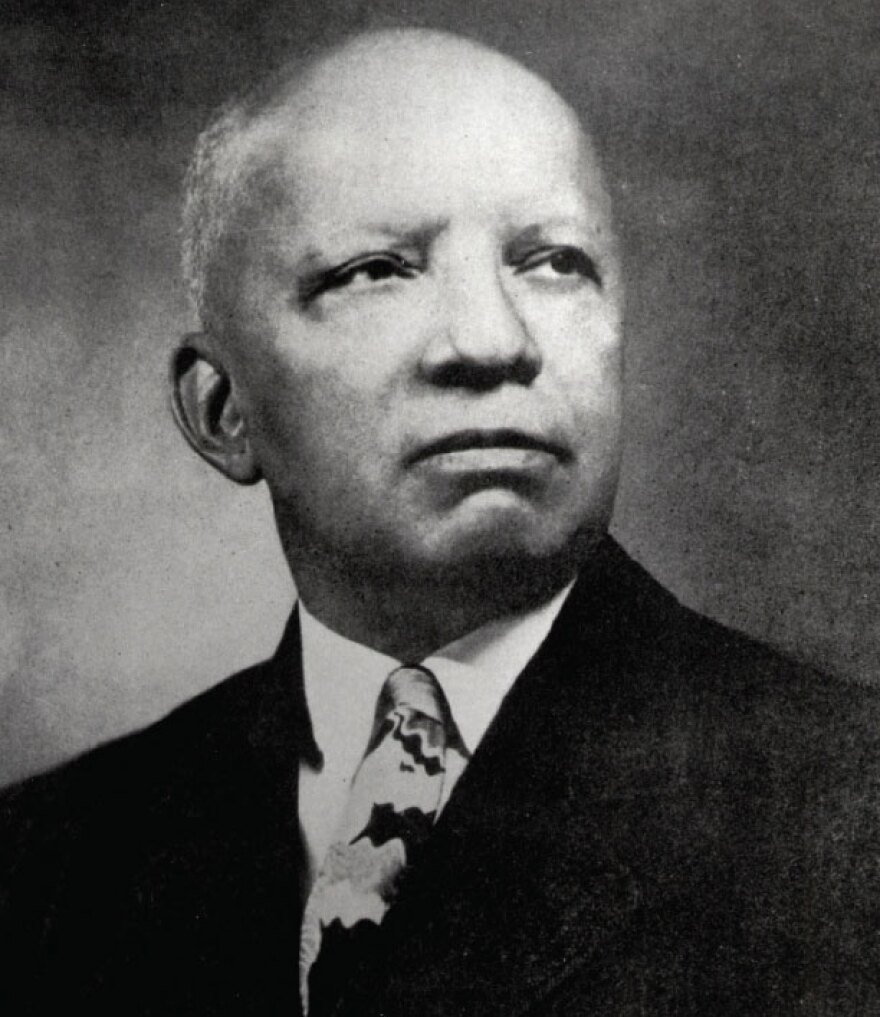To celebrate Black History Month, the Texas State Historical Association has highlighted black Texans who made political, cultural and social strides for African Americans in the state and across the country.
The historical association, which has been active for 120 years, offers a wealth of information about the history of Texas and the people who shaped it. Explore its online portal dedicated to promoting the state’s remarkable black figures and their accomplishments.
The online archive includes the stories of two historic African Americans with North Texas ties: Bessie Coleman and Juanita Craft.
Beginnings of Black History Month
Black History Month was started by historian Carter G. Woodson. He was born near New Canton, Virginia in 1875. He was a trailblazer in African-American scholarship. In 1926, he proposed and launched the annual observance of “Negro History Week” as it was called then.

Fifty years later, in 1976, the celebration was extended to the entire month of February. It’s said that Woodson chose February to coincide with the birthdays of President Abraham Lincoln and Frederick Douglass, a prominent American abolitionist, author and orator.
Woodson wanted to promote African-American history, which was often misrepresented or simply ignored by scholars at the time.
Bessie Coleman, the first black female pilot
Bessie Coleman was the first African-American woman to get her pilot’s license. She was born in Atlanta, Texas in Jan. 26, 1892. Her 125th birthday was last month.
She went to school in a Waxahachie neighborhood a few blocks from Freedman Memorial Plaza, where a historical marker in her name stands. Visitors to Ellis County Museum can explore an exhibit about Coleman’s youth in North Texas, her brief time at an Oklahoma college and her prosperous flight career as an adult.

With little opportunity and abundant hardship for African Americans in the South, Coleman at 23 moved to Chicago, where she first had the desire to become a pilot.
In the early 20th century, there were no schools teaching black women to fly. So, Coleman moved to France in 1920, studied aviation and earned her international pilot’s license in 1921.
She came back to the U.S. as the first black woman pilot and performed for integrated audiences in air shows across the country. Her first show was in September 1922 on Long Island.
She performed tricks in the popular style of flying back then called “barnstorming.”
She gained massive popularity and used her position to encourage other African Americans to fly. She also made a point of refusing to perform at locations that wouldn't admit members of her race.
She died in flight on April 30, 1926 before an air show in Jacksonville, Florida. She was 34. Her Chicago funeral was attended by about 10,000 mourners including prominent African Americans at the time, including civil rights leader Ida B. Wells.
Juanita Craft, the first black woman to vote in Dallas County
Juanita J. Craft was a monumental leader in the Civil Rights Movement in Texas. She was born on Feb. 9, 1902 in Round Rock, Texas.
Her career as a civil rights activist started and developed in Dallas. She joined the Dallas branch of the NAACP in 1935 and was appointed chairman of membership in 1942. She and Lulu Belle White of Houston organized 182 branches of the NAACP in Texas over 11 years.

In 1944, Craft became the first black woman in Dallas County to vote. Two years later, she began work as the youth council advisor for the Dallas NAACP. Her work with the youth unit became a model for other NAACP youth groups throughout the country.
In the 1950s and 1960s she led protests aimed at integrating public universities and the State Fair of Texas.
In 1975, at the age of 73, she was elected to the Dallas City Council, where she spent the next two years working to improve the status of Hispanic and Native Americans. She died in Austin in 1985.
More: A 1974 interview with Juanita Craft
There’s a recreation center named for Craft in South Dallas. And you can visit her home in Dallas where she lived for 50 years. It’s a modest, white wooden house in Dallas' Wheatley Place Historic District. Both Lyndon Johnson and Martin Luther King, Jr., visited her there to discuss the future of the civil rights movement. It’s now the Juanita J. Craft Civil Rights House.
Learn More
You can learn about more historic black Texans by visiting the Texas State Historical Association’s website. While you’re there, you can explore the materials, subscribe to newsletters and even download a free e-book about the trials and triumphs experienced by African Americans in Texas.
And for more history on Texas women like Craft and Coleman, you can explore Women in Texas History, which includes an archive of short audio stories produced by KUT in Austin.





